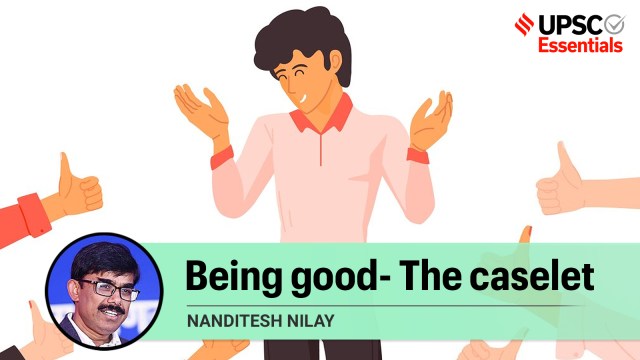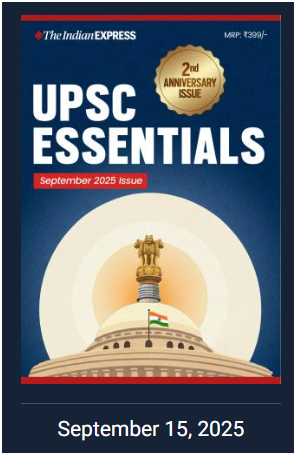© IE Online Media Services Pvt Ltd
Latest Comment
Post Comment
Read Comments
 We all wish to value our profile and money during the course of life. The value of goodness somewhere takes the back seat.
We all wish to value our profile and money during the course of life. The value of goodness somewhere takes the back seat. UPSC Ethics Simplified draws your attention to a topic of greed and desire in the form of a caselet. This caselet is an extension of the concept discussed on October 22 (Being Good: The concept). It is advised to revisit the concept article before reading the caselet below.
Relevance: The topic is a part of UPSC CSE General Studies Paper-IV Ethics syllabus. Concepts are particularly relevant in the theory section. Aspirants will also find the article useful for their Essay paper and situation-based questions in personality tests. Moreover, the essence of the article will help aspirants in their professional lives or in life in general. Nanditesh Nilay writes for UPSC Ethics Simplified fortnightly on Sundays. The first article will be a concept while the second article will be a caselet based on the concept.
“What do you want to become?” His teacher asked. Aspire answered, “Powerful.” The teacher was surprised. He was not expecting that answer from Aspire, so he rephrased the question. “I mean to ask about your goal in life. Why are you preparing so hard?” After listening to his teacher, Aspire replied, “Sir, I have already said that becoming powerful is my ultimate goal. And please don’t interpret my answer as physical fitness; it is already there. For me, an empowering profile and money are everything, and I know anybody who possesses both is a powerful and happy person.”
Ten years have passed, Aspire got married. His wife Aakansha is a doctor, and he is working in the software industry. They were blessed with twins. One day both were standing at the bus stop with their children. on their first day of school. However, Aspire and Aakansha were looking tense and sad.
Though both were financially sound and carrying a senior profile, they still did not look confident. “Now you both are successful and represent power. Your lovely children are now ready to go to school. Why a grim posture, then?” the teacher asked.
Aspire and Aakansha replied, “Sir, our children are simple, soft, and introverts. We hope that the bus driver, school teacher, the principal will value goodness while interacting with them. We expect that nobody will hurt our children even emotionally.” The teacher turned towards those kids and asked, “What do you both want to become?” There was no response from their side, and the bus arrived.
Aakansha said to the bus staff, “Bhaiya, they are kids. handle them softly.” In the meanwhile, there was another vehicle that crossed dangerously. Aspire shouted, “Don’t you all know how to drive? Children are on the road.”
1. In your opinion becoming good is more important or becoming powerful?
2. If you would have been Aspire or Aakansha what kind of values would you have preferred?
3. Civil services is all about serving others. How this case is important to address that value?
We all wish to value our profile and money during the course of life. The value of goodness somewhere takes the back seat. However, the moment we see ourselves or our dearest ones facing the world, we expect the whole lot to Being Good. A good police officer at the police station, a good doctor at the hospital, a good principal at school, a good fellow passenger, a good shopkeeper, and so on. We expect everyone to first believe and behave as a good human being.
(The writer is the author of ‘Being Good and Aaiye, Insaan Banaen’. He teaches courses on and offers training in ethics, values and behaviour. He has been the expert/consultant to UPSC, SAARC countries, Civil services Academy, National Centre for Good Governance, Central Bureau of Investigation (CBI), Competition Commission of India (CCI), etc. He has PhD in two disciplines and has been a Doctoral Fellow in Gandhian Studies from ICSSR. His second PhD is from IIT Delhi on Ethical Decision Making among Indian Bureaucrats. He writes for the UPSC Ethics Simplified (Concepts and Caselets) fortnightly.)

Read UPSC Magazine


